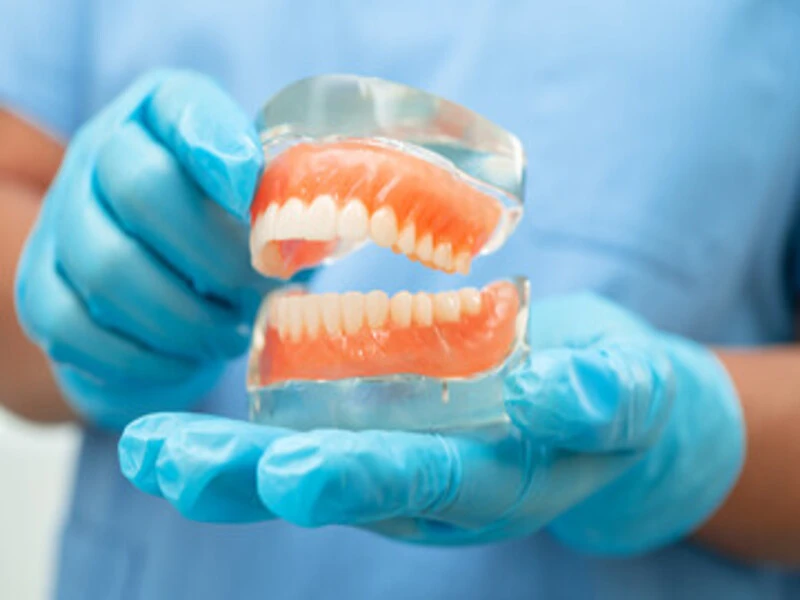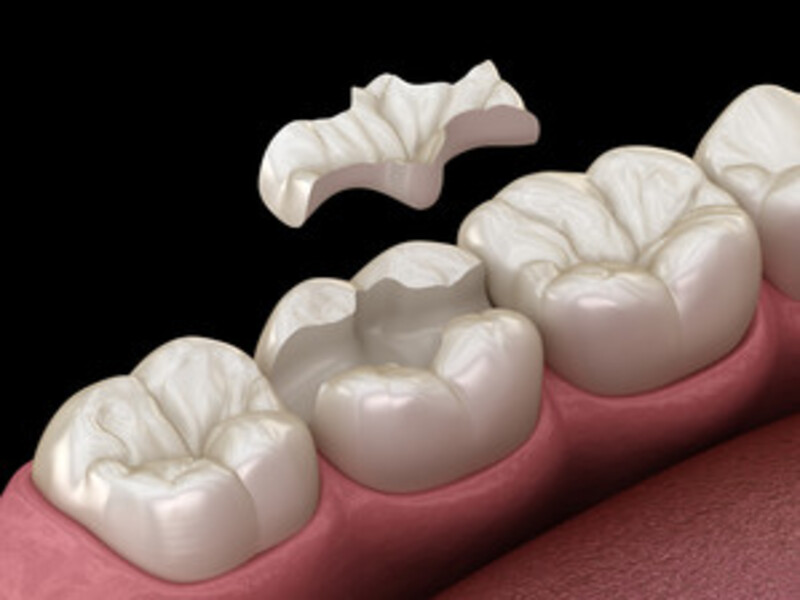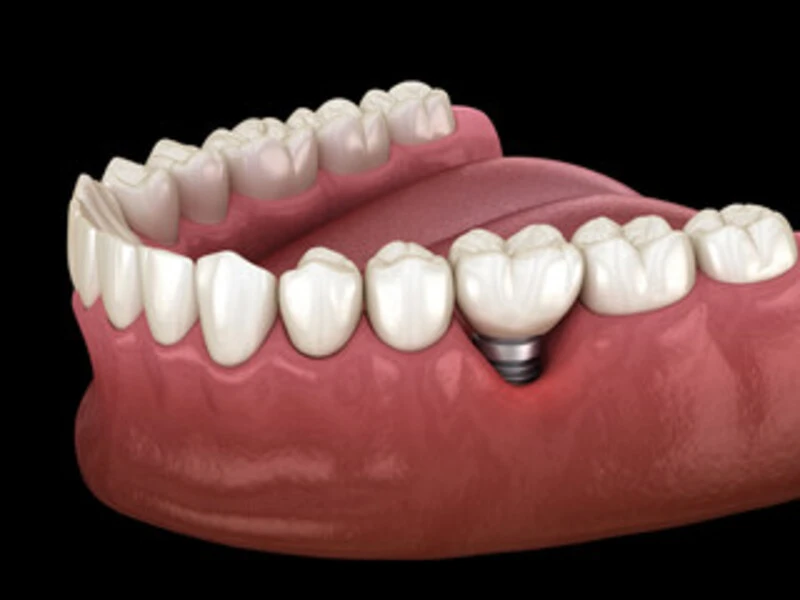Dental health is a cornerstone of overall well-being, yet it’s often overlooked until issues become unavoidable. Missing teeth, persistent discomfort, or difficulties with chewing can drastically affect your quality of life and self-confidence. Recognizing the 8 Signs that You Need Dental Implants is essential for addressing these problems before they escalate. Dental implants not only restore functionality and aesthetics but also provide a permanent solution to many oral health challenges. In this guide, we’ll delve into these vital signs, helping you understand when it’s time to consider implants and how they can transform your smile and enhance your overall health.
What Are Dental Implants?
Dental implants are advanced dental solutions designed to replace missing or severely damaged teeth. They consist of a titanium screw implanted into the jawbone, an abutment, and a crown that mimics the natural tooth in appearance and function. Unlike dentures or bridges, implants integrate with the jawbone, providing durability and preventing bone loss.
Their natural feel, high success rate, and ability to restore chewing and speech make dental implants a preferred choice for many patients. Let’s dive into the signs that suggest it’s time to consider this transformative dental solution.
1. Missing Teeth and Gaps in Your Smile

Missing teeth can significantly affect your oral functionality and aesthetics. Whether caused by injury, decay, or gum disease, gaps in your smile can lead to:
- Difficulty chewing and speaking.
- A shift in neighboring teeth, disrupting alignment.
- A drop in self-esteem due to cosmetic concerns.
Dental implants provide a permanent solution, seamlessly filling gaps with a natural look and feel. They prevent further oral health issues and restore the confidence that comes with a complete smile.
2. Struggles with Dentures or Bridges
While dentures and bridges are common alternatives for missing teeth, they often present challenges:

- Dentures may slip during speaking or eating, causing discomfort.
- Bridges can damage adjacent healthy teeth as they require structural support.
Dental implants eliminate these problems by anchoring directly into the jawbone. This ensures stability, comfort, and a longer-lasting solution compared to traditional methods.
3. Difficulty Chewing or Eating Certain Foods

Missing teeth or poorly fitted dentures can make eating a chore. Foods that are tough, crunchy, or sticky may become off-limits, impacting your diet and nutrition.
Dental implants mimic the function of natural teeth, enabling you to enjoy a varied and balanced diet without discomfort or limitations. Say goodbye to avoiding your favorite foods and hello to dining with confidence.
4. Loose or Shifting Teeth

Loose or shifting teeth often result from gum disease, also known as periodontitis. This condition weakens the support system of your teeth and, if untreated, leads to tooth loss.
Dental implants can replace teeth lost to advanced gum disease while helping to stabilize surrounding teeth and preserve bone density, preventing further deterioration of your oral health.
5. Jawbone Deterioration

The loss of a tooth does more than create a gap. It triggers jawbone resorption. Without the stimulation provided by tooth roots, the bone starts to deteriorate, which can cause:
- A sunken or aged facial appearance.
- Difficulty with future dental restorations due to bone loss.
Dental implants are the only restorative solution that stimulates the jawbone, preserving its structure and maintaining your facial profile over time.
6. Severely Cracked or Damaged Teeth

Teeth with extensive cracks or damage may not always be salvageable. When repair isn’t possible, extraction becomes necessary.
Dental implants offer a reliable replacement for irreparable teeth. Their durability and natural function ensure that your smile remains intact, and you won’t have to worry about further complications.
7. Chronic Dental Pain

Persistent tooth pain often signals deep decay, infection, or structural damage. When these issues are beyond repair, removing the tooth and replacing it with a dental implant may be the best course of action.
By opting for implants, you can eliminate chronic discomfort, avoid the spread of infection, and restore your mouth to full functionality.
8. Changes in Facial Structure or Sunken Appearance

Missing teeth can gradually alter your facial appearance, leading to:
- Hollowed cheeks or a recessed profile.
- Premature aging due to bone loss.
Dental implants prevent these changes by stimulating the jawbone, maintaining your facial contours, and enhancing your overall appearance. They are an effective way to reclaim a youthful and vibrant look.
Why Choose Dental Implants Over Other Options?
Dental implants stand out due to their numerous advantages:
- Durability: They last significantly longer than bridges or dentures, often for decades, with proper care.
- Natural Feel and Function: Implants behave like natural teeth, making them indistinguishable in both look and utility.
- Improved Oral Health: Unlike bridges, implants don’t rely on adjacent teeth for support, leaving them intact.
Additionally, implants reduce the risk of complications such as cavities in neighboring teeth and bone loss.
Steps to Take If You Notice These Signs
If you experience any of these symptoms, consult a qualified dentist to explore your options. During your consultation:
- Your dentist will assess your oral health, jawbone density, and specific dental needs.
- Advanced imaging technology, such as 3D scans, may be used to determine the precise placement of implants.
- A tailored treatment plan will be created, outlining the procedure and expected outcomes.
The process may seem extensive, but the results are worth it—a healthy, functional, and radiant smile that lasts a lifetime.
Why Choose the Right Dental Team for Your Implants?
The success of dental implants largely depends on the expertise and technology used during the procedure. Opt for a dental practice that offers:
- Experienced Professionals: Ensure your dentist specializes in implantology and has a track record of successful cases.
- State-of-the-Art Equipment: Clinics equipped with advanced technology, such as 3D imaging, ensure precision and safety.
- Comprehensive Care: Look for a practice that handles all stages of the implant process in-house, from consultation to final restoration.
Last Verdict
Recognizing the signs that you may need dental implants is the first step toward improving your oral health and quality of life. By addressing these issues early, you can prevent further complications and enjoy the benefits of a complete, functional smile.
Schedule a consultation today with a trusted dental professional to discuss how dental implants can transform your life. It’s time to invest in your health, appearance, and confidence.
FAQs
Q1: How do dental implants work, and why are they better than other options?
A1: Dental implants are designed to replace missing teeth by mimicking the structure of natural teeth. They consist of three main components: a titanium post that acts as the root, an abutment that connects the post to the crown, and a custom-made crown that resembles a natural tooth.
Unlike dentures or bridges, implants are surgically placed into the jawbone, where they fuse over time through a process called osseointegration. This creates a stable and durable foundation. The key benefits include:
- A natural look and feel.
- Long-term durability with proper care.
- Preservation of jawbone density, preventing facial sagging.
- No need for adhesives or altering nearby teeth.
Dental implants are considered the gold standard for tooth replacement due to their ability to fully restore function and aesthetics while preventing further oral health issues.
Q2: Are dental implants painful to get?
A2: The process of getting dental implants is typically well-tolerated, thanks to modern anesthesia and sedation techniques. During the procedure, local anesthesia numbs the area, ensuring you feel minimal discomfort. For patients with dental anxiety, sedation options like IV sedation can make the experience even more comfortable.
After the surgery, mild soreness or swelling is common but usually subsides within a few days. Pain management can be effectively handled with over-the-counter medications like ibuprofen. Most patients report that the benefits of dental implants far outweigh the temporary discomfort.
Q3: How long do dental implants last, and what maintenance is required?
A3: With proper care, dental implants can last a lifetime. The titanium post, which serves as the implant’s root, is incredibly durable and resistant to wear. However, the crown may need replacement after 10-15 years due to normal wear and tear.
Maintaining your implants involves:
- Regular brushing and flossing to keep the surrounding gums healthy.
- Routine dental checkups to monitor the condition of the implant.
- Avoiding habits like smoking or chewing hard objects that could compromise the implant’s integrity.
By prioritizing oral hygiene and professional care, you can enjoy the full benefits of dental implants for decades.
Q4: Am I a candidate for dental implants if I have bone loss?
A4: Bone loss doesn’t automatically disqualify you from getting dental implants. Many patients with insufficient jawbones can still undergo the procedure with preparatory treatments like bone grafting or sinus lifts. These procedures rebuild the bone structure, creating a stable implant foundation.
Your dentist will thoroughly evaluate, including X-rays or 3D imaging, to determine the best approach for your unique situation. With advancements in dental technology, even patients with significant bone loss can achieve successful implant outcomes.
Q5: Are dental implants affordable, and how can I manage the cost?
A5: Dental implants invest in your long-term oral health and quality of life. While the upfront cost may seem higher than other tooth replacement options, implants provide unparalleled durability and functionality, reducing the need for future replacements or repairs.
Many dental practices offer flexible payment plans, financing options, or in-office discount programs to make implants more accessible. Additionally, certain insurance plans may cover part of the cost. It’s always worth consulting with your dental provider to explore all available financial solutions.
By considering the lifelong benefits and exploring payment options, dental implants can become an affordable solution tailored to your needs.
Achieving a healthier, more confident smile starts with understanding the 8 Signs that you Need Dental Implants. If you’re experiencing any of these indicators, consult with a trusted dental professional today to explore your options and transform your oral health. To explore how managing your overall health digitally can complement treatments like dental implants, check out our guide on the Hayfork Health Clinic Patient Portal Login for a seamless healthcare experience.
